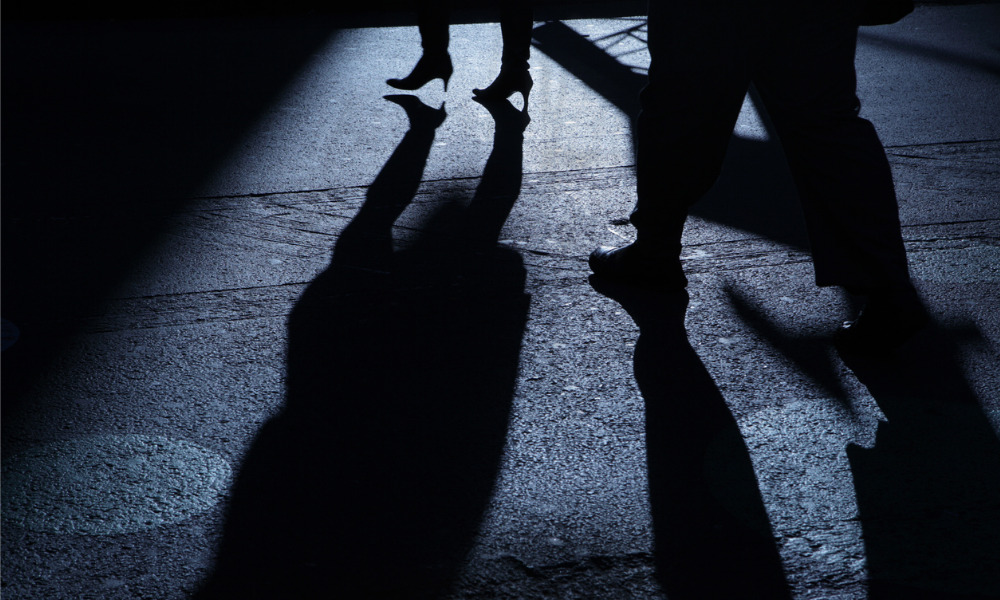It is time to wrest control from an institution more interested in protecting itself than women

How many former Supreme Court Judges does it take to fix a broken military justice system?
Hopefully, the answer is that the third time is the charm.
There is no doubt that a toxic culture of sexual harassment and misconduct exists in the Canadian Armed Forces (CAF). The current system of reporting and prosecuting military sexual misconduct is part of that toxic culture which can often leave victims in fear of reprisals, violence, and retribution.
It is difficult in the best circumstances for civilian victims to report abuses by people in positions of power. Things are even more complicated when your co-workers and commanding officers are the same people who investigate, prosecute, and adjudicate your criminal complaint.
It is fundamentally unjust that a CAF victim who a senior officer has sexually assaulted must report the offence to the military police and wade through a murky military justice system that seems more interested in protecting the institution than seeking justice.
In 2015, former Supreme Court of Canada justice Marie Deschamps tabled her external review into sexual misconduct and sexual harassment in the CAF. She found a culture hostile toward women and LGTBQ members and conducive to more serious sexual harassment and assault incidents.
Deschamps also concluded that victims do not report a large percentage of incidents of sexual assault, in part because of problems with the military justice system. Ultimately, she recommended that victims be allowed to have their criminal cases transferred to civilian authorities.
In 2021, in the third of a series of independent reviews, former Supreme Court of Canada Justice Morris Fish tabled a report on the military justice system. Fish described a “command-centric disciplinary model that provided weak procedural safeguards” that was “stubbornly entrenched” and seemingly reluctant to evolve with changing social values and contemporary legal norms.
Ultimately, Fish found that recommendations of the first two independent reviews, conducted by Chief Justices Lamer and Patrick LeSage in 2003 and 2011, remained unaddressed and noted significant concerns with the independence of military justice actors. He too recommended that “sexual assaults should not be investigated or prosecuted under the National Defence Act and should instead be referred to civilian authorities.”
And finally, last month, former Supreme Court Justice Louise Arbour, for the third time, made the same recommendation – sexually-based offences, no matter where or when they occur, should be adjudicated in the civilian system.
I’ll pause here to expose my biases; Justice Arbour is my mother-in-law. I have rarely disagreed with her, but I have never been afraid to tell her when she is wrong (which is a rare occurrence).
And true to form, Justice Arbour is right. Just as Justice Deschamps was right. Just as Justice Fish was right.
The CAF has not designed its system to deal with allegations of sexual misconduct.
Military police lack the training to investigate and document allegations properly, the chain of command has historically protected the institutions over people, and victims are rightly reluctant to report offences for fears of reprisal.
Arbour notes that since the Deschamps report, there has been “no meaningful improvement in the investigation and prosecution of sexual crimes by the military justice system.”
The CAF is failing victims and has demonstrated, at best, an inability to reform itself and, more likely, an unwillingness to reform.
The only way to ensure equal protection under the law for CAF victims is to mandate that – whether on duty or off duty, on base or off base, in Canada or overseas – civilian authorities have exclusive jurisdiction over sexual offences.
Arbour noted that the Canadian Armed Forces does not investigate or prosecute impaired driving offences or domestic violence allegations. Why? The CAF says that “certain circumstances do exist, such as in cases of alleged domestic violence, or the prosecution of impaired driving offences, where the recourse to the provincial court system is considered more appropriate, on a policy basis.”
How are sexual misconduct allegations any different?
Why keep control of the investigation and prosecution of those offences?
Who is the CAF trying to protect?
The civilian system may not be perfect. There is room to improve the reporting and prosecution of sexual assaults in civilian courts. And policies will need to be developed to avoid situations of jurisdictional hot potato. But we need to and can do better for CAF victims.
We have two decades of reports which conclude that the CAF justice system has failed women and victims of sexual assault.
Since the CAF seemingly can’t handle that truth, it is past time we force them.











